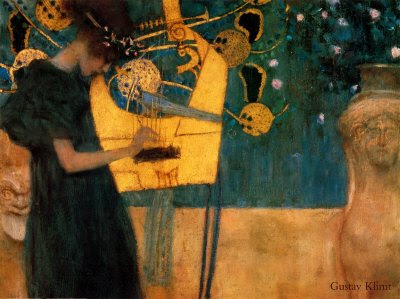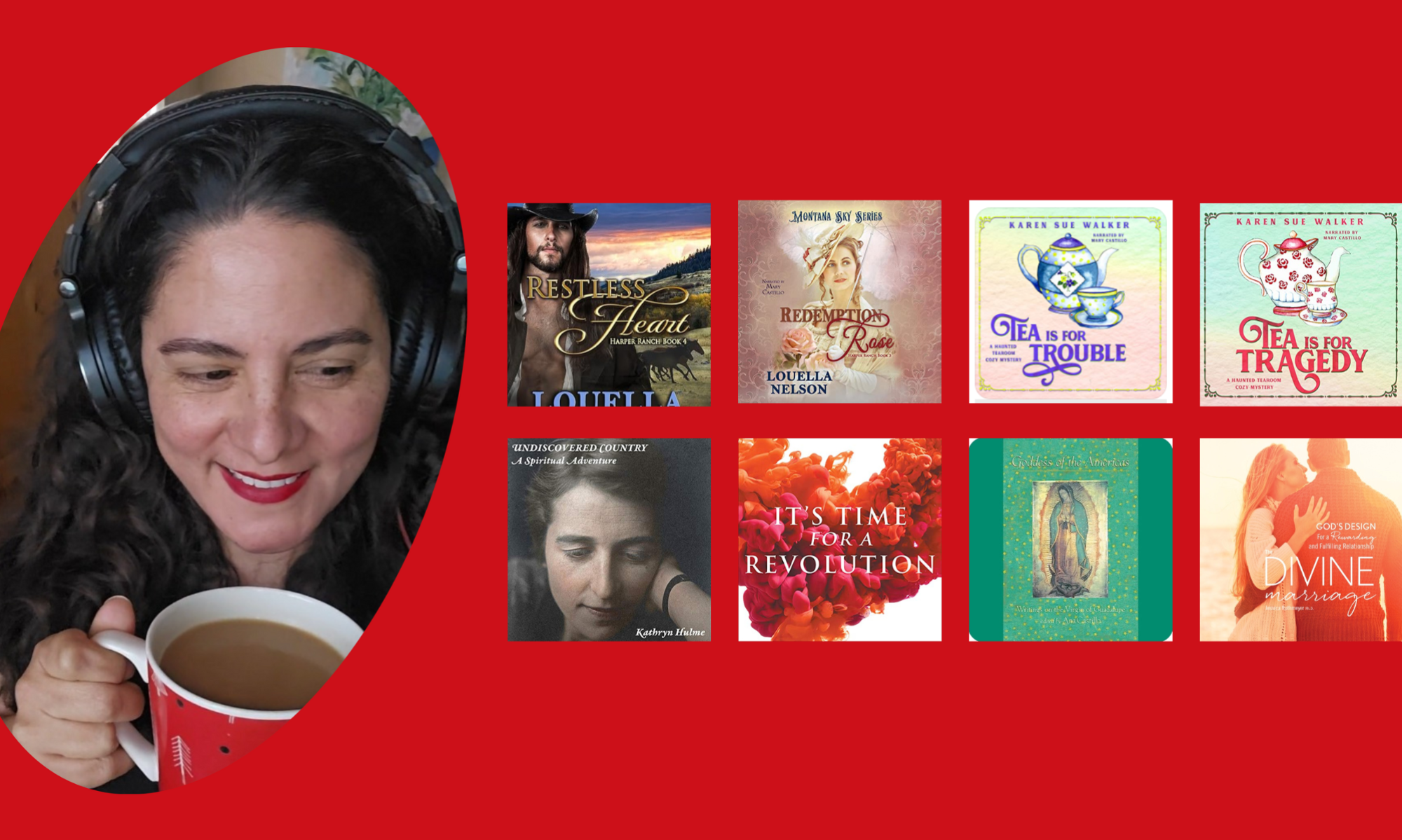 Musique by Gustav Klimt @ Art.com
Musique by Gustav Klimt @ Art.com
The other day Ryan and I were talking about the books and scripts we’ve read lately. I had just come off a two-month reading dry spell during which I’d start a new book and then put it down at page 20, not caring what happened in the end.
Up till I had a child, my rule was never to leave a book unfinished. But I’m 35 now and in my family that makes me just shy of middle aged. My great grandma lived till she was 76 and my great grandpa and Grandma Mary stuck around till they were 88 … mas o menos (neither were forthcoming about their real ages). So compared to what I want to accomplish in this lifetime and my probable life expectancy, I don’t have a lot of time to waste.
Anyway, Ryan argued that the reason why so many movies fall short and why so many books go unfinished is that their authors are tone deaf when it comes to story. Even though many writers come up with great ideas and snazzy hooks, and possess enviable literary wit, they can’t move a story from point A to Z.
So when I think about the books that I’d given up on, I realized indeed they were tone deaf in story. In other words, nothing was happening except the protagonist complaining about his or her life. Or worse, I was reading an author who clearly loved hearing him or herself talk. Nothing was at stake and no one or nothing was in jeopardy and those my friends are the building blocks of a good story.
Now this isn’t a literary fiction versus popular fiction rant. Nor does it have anything to do with my constant irritation with books titled, “The Candyman’s Daughter” or “The Stinky Cheesemaker’s Wife.” I don’t think that you don’t have to be “genre-fied” to spin a rip-roaring yarn. For example, even some books that cultural connoisseurs have deemed literary fiction, tell stories. Check it out:
In Cold Mountain, a soldier is making his way back home and to the woman he loves. Inman is in constant peril and much is at stake.
In Water for Elephants, a young veterinary student joins the circus and falls in love with a married woman. On each page, Jacob’s life and that of an elephant are on the line.
In The Great Gatsby – it’s read in high school so it’s a certifiable classic literary novel – a man tries to woo the golden girl who’s married to a lout. Jay Gatsby risks his heart for idealistic love.
So recently I came across a book that lacked a story and I froze with terror that the dry spell had started again.
(By the way, I won’t name names because that’s cheesy and I don’t need attention so badly that I’ll risk your hate mail.)
Going back to the book … The character was cute but if you read chick lit, you’ve read her a thousand times over and better. The writing was fast-paced and in a few places quirky enough for me to crack a grin. And guess where it takes place? If you thought New York, you win!
I gave it up at page 7 even though:
- A major publishing house bought and published it.
- An editor, marketing/PR person, copyeditor, sales squad, cover artist and a cast befitting a Cecil B. DeMille epic worked on it.
- You’ll find it on the tables at major book stores.
- Many prominent women in media called it the best thing since their vibrator.
Okay, I made up the part about vibrators but you get the idea.
This book, out of thousands, was plucked for publication even though IT HAS NO STORY.
Seriously dude, that’s the problem. Too many people are story tone deaf and yet have the wherewithal – time and a laptop and in some cases, friends in high places – to write a manuscript that gets published. Trust me, I know. Having judged plenty of contests and having read some awesome work by the members of my former critique group, there are stories out there that can’t find a place at your local bookstore. They’re held off because (a) they’re not “high concept” enough (an over-rated ideal, let me tell you) or (b) publishers can’t take chances on stuff that’s not regency romances or vampires. (Dude, I do don’t get the vampire thing.)
But could someone become pitch perfect when it comes to story? Do you have to be “special,” or can you cultivate it?
Hmm. That’s a toughie. I guess it’s up to the individual – not that I’m claiming to have been born with great literary prowess …. just ask the people who proclaimed their hatred of my books on Amazon.com. But when it comes to story, I’m always learning by reading books and watching movies. I read plenty and preferably, beyond the confines of my genre.
When I’m lucky to find that special book or movie that make me forget that I’m a writer, I reread/rewatch it to spot how the author structured the story. I even take notes and ask myself the following:
- What does she reveal about the characters? But most importantly, how and when does she reveal what they’re trying to keep secret?
- How does she work characters against each other and create conflict that make me hold the book tighter, or lean forward towards the screen?
- Where are the pulse points of the story? (One could call them plot points, turning points … whatever floats your boat.
I’m not saying anything new about story telling, by the way. I think every writer knows these questions instinctively and through writing and rewriting and more writing and rewriting, you understand what you’ve been doing since you were playing make-believe as a kid.
So with that all said – oh, I feel like I could walk on air! – I’ve got some storytelling to do.
